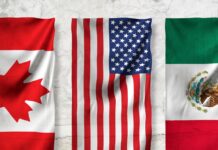The latest Survey of Consumer Finances, a triennial look at American households’ financial condition, provides a detailed snapshot of the country just before it was rocked by a recession that arrived with hurricane force out of the blue sky of the longest economic expansion on record.
It reveals low- and middle-income earners were finally starting to see some wage increases as unemployment dropped to 3.5 percent. And their average wealth climbed as home values and the stock market both gained value.
Yet the gains weren’t enough to make a dent in the wealth gap. The top 1 percent own about a third of the nation’s wealth, near the 30-year high for that population. The poorer half of the country, meanwhile, claim roughly 2 percent of the overall wealth.
The richest tenth of households have seen their share of the wealth increase over the past three decades, while the other 90 percent have seen theirs slide, the report finds.
The report underscores a point Democratic presidential nominee Joe Biden has sought to emphasize on the campaign trail: Economic inequality was already an intractable problem before it was supercharged by pandemic shutdowns disproportionately targeting lower-income workers. President Trump, meanwhile, has argued the portion of the expansion he presided over was delivering solid gains to minority populations before the pandemic hit.
But the report also highlights how White families enjoyed huge advantages even before the recession.
“Even during the boom-time final stretch of a record economic expansion, the typical White family had eight times the wealth of a typical Black family in 2019, and five times the wealth of a typical Hispanic family,” Rachel Siegel reports of the survey’s findings. “Last year, the median wealth for Black families was less than 15 percent that of White families … White families had median family wealth of $188,200, compared to that of Black families, which was $24,100.”
From the New York Times’s Ben Casselman:
Generational transfers of wealth have helped cement that gap. Per Rachel, “White families are also almost three times as likely as Black families, and more than four times as likely as Hispanic families, to have received an inheritance.”
Inheritance was one of “many complex societal, governmental, and individual factors” that Fed economists identified as entrenching racial disparities. They also pointed to homeownership opportunities, access to tax-advantaged savings plans, and “individuals’ savings and investment decisions.”
The stock market’s rebound has mitigated the damage for some families. But many haven’t benefited.
“Last year, about 53 percent of families owned stocks, a slight uptick from 2016, the survey showed,” Rachel writes. “But only about 31 percent of families in the bottom half of the income distribution held stocks last year. For comparison, about 70 percent of families in the upper-middle-income group held stock, and more than 90 percent of families in the top decile held stock.”
Trump tracker
“The Apprentice” funded Trump’s reemergence.
The latest bombshell in the Times series on Trump’s tax returns focuses on the reality TV show: “By analyzing the tax records, the New York Times was able to place a value on Mr. Trump’s celebrity. While the returns show that he earned some $197 million directly from ‘The Apprentice’ over 16 years — roughly in line with what he has claimed — they also reveal that an additional $230 million flowed from the fame associated with it,” the Times’s Mike McIntire, Russ Buettner and Susanne Craig report.
“Just as, years before, the money Trump secretly received from his father allowed him to assemble a wobbly collection of Atlantic City casinos and other disparate enterprises that then collapsed around him, the new influx of cash helped finance a buying spree that saw him snap up golf resorts, a business not known for easy profits. Indeed, the tax records show that his golf properties have been hemorrhaging millions of dollars for years.”
- The future president signed a slew of endorsement deals, including hawking Double Stuf Oreos for $500,000: But there’s a lot of stuff that could pose political problems. As the economy collapsed, Trump spoke at conferences and lent his name to companies marketing quick ways to turn a buck. “His tax returns reveal just how much the company was paying him for the happy talk: $8.8 million over 10 years, including $1 million in 2009 — the nadir of the Great Recession, when desperate people were drawn to promises of a fast payday. In fact, Trump actively capitalized on the economic anxiety,” the Times writes of a company that promised people could make easy money but regulators later found charged most people more than ever made back.
Another fact you will probably hear about at tonight’s first presidential debate: Trump probably paid less in federal income tax than the average middle-class American. “The average middle-class American household paid approximately three times as much in federal income taxes in 2016 and 2017 as Trump,” Jeff Stein and Christopher Ingraham write.
“In 2016, households in the middle 20 percent of the U.S. income distribution paid an average of $2,200 in federal income taxes, according to the Congressional Budget Office, a nonpartisan government agency. Those middle-income households each earned about $60,000 on average in 2016. The Times’s disclosure of Trump’s shockingly low federal income payments prompted an outpouring of criticism of what appeared to be his unusually aggressive attempts to evade obligations to the Internal Revenue Service.”
There are also national security concerns: “Security teams at U.S. spy agencies are constantly scouring employee records for signs of potential compromise: daunting levels of debt, troubling overseas entanglements, hidden streams of income, and a penchant for secrecy or deceit to avoid exposure,” Greg Miller and Yeganeh Torbati report.
“Trump would check nearly every box of this risk profile based on revelations in the Times from his long-secret tax records that former intelligence officials and security experts said raise profound questions about whether he should be trusted to safeguard U.S. secrets and interests … The records show that Trump has continued to make money off foreign investments and projects while in office; that foreign officials have spent lavishly at his Washington hotel and other properties; and that despite this revenue he is hundreds of millions of dollars in debt with massive payments coming due.”
Market movers
Wall Street bounces back after a rough stretch.
Investors sent all three major indexes soaring: “The Dow closed 1.5 percent, or 410 points, higher. The index had been up more than 500 points at its high point. The broader S&P 500 climbed 1.6 percent. These gains come after four consecutive weeks of losses,” CNN Business’s Anneken Tappe reports. “The Nasdaq Composite finished 1.9 percent higher.”
- Biggest movers: “Shares of major tech names rose broadly. Facebook and Amazon climbed 0.8 percent and 2.6 percent, respectively. Apple was up 2.4 percent. Alphabet advanced 1.4 percent and Microsoft closed higher by 0.8 percent. Bank stocks also contributed to Monday’s gains. JPMorgan Chase, Bank of America, Citigroup, Goldman Sachs and Morgan Stanley all popped more than 2 percent.” (Amazon CEO Jeff Bezos owns The Washington Post)
Money on the Hill
Pelosi officially has a new stimulus plan offer. But the window for a breakthrough is closing rapidly.
The stalemate broke ever so slightly late last night: “The White House and House Speaker Nancy Pelosi resumed discussions over a possible economic relief bill as Democrats offered a $2.2 trillion package and Treasury Secretary Steven Mnuchin immediately engaged in talks,” Erica Werner reports.
“Democrats described their new offer as an updated version of the $3.4 trillion Heroes Act the House passed in May, which the White House and Senate Republicans dismissed as far too costly. Senate Republicans and Mnuchin have also said $2.2 trillion is too much to spend, but Mnuchin has said he is open to negotiations. It was not immediately clear whether the talks would bear fruit or whether Democratic leaders would use the bill to provide political cover for moderate House Democrats, who have grown increasingly anxious over Congress’s recent inaction on pandemic relief legislation.”
The details: “$32 billion payroll support program for the airline industry, which is scheduled to expire on Sept. 30, threatening tens of thousands of jobs. It would include another round of $1,200 stimulus payments, as well as renew the expired unemployment benefits of $600 per week … extend the Paycheck Protection Program for small businesses and provide $182 billion for K-12 schools and $39 billion for postsecondary schools. An additional $57 billion would go toward other child-care costs.”
- There’s also funding for state and local governments: “$436 billion in aid to states, cities, and territorial and tribal governments that have experienced a major budget crunch this year. That’s about half as much as the amount for cities and states that was included in the original Heroes Act …”
Coronavirus fallout
From the United States:
- One million people have died worldwide: “That’s as many as live in San Jose, Calif.; Volgograd, Russia; or Qom, Iran,” Marc Fisher, Gerry Shih, Chico Harlan, Terrence McCoy and Joanna Slater report.
- Infection rate among teens double that of young children, new CDC analysis shows: “The coronavirus infection rate among teenagers is roughly twice that of younger students, according to a new analysis from the Centers for Disease Control and Prevention that could further complicate the debate over reopening schools,” Antonia Farzan reports.
- The economy is continuing to recover: “With much of the initial boost from business reopenings fading, America’s economic recovery has mostly settled into a trend of gradual improvement. Some parts of the economy, including retail and housing activity, have rebounded to pre-pandemic levels, but the labor market still has a long way to go,” Bloomberg News’s Reade Pickert, Yue Qiu and Alexander McIntyre report.
- … But a possible third surge in cases is coming: “Since the most recent nadir on Sept. 9, when the national rate was at 34,300 cases a day—still a notch above the April peak—cases have risen to 45,300 a day, a 32 percent increase. The numbers paint an alarmingly familiar picture that spells trouble ahead—despite Trump’s repeated but false assertions that the country is ‘rounding the final turn’ on the pandemic,” TIME’s Chris Wilson and Jeffrey Kluger report.
From the corporate front:
- United Airlines pilots ratify deal that will prevent 2,800 from being furloughed: “Under the agreement, existing hours will be spread across the pilot group, which means most pilots will temporarily work fewer days and make less money. But the deal ensures that all 13,000 United pilots will keep their jobs, Capt. Todd Insler, chairman of the United Air Line Pilots Association master executive council said,” Lori Aratani report.
- Tight inventories set the stage for U.S. auto industry rebound: “Automakers report September U.S. sales on Thursday, and forecasters expect the annualized sales pace will exceed the August rate of 15.2 million vehicles … Even so, North American production is about 2 million vehicles behind last year, said Charlie Chesbrough, senior economist at research agency Cox Auto,” Reuters’s Rachit Vats reports.
- Employers face costly lawsuits over workers who brought covid home to their families: “The daughter of Esperanza Ugalde of Illinois filed in August what lawyers believe is the first wrongful death ‘take home’ lawsuit, alleging her mother died of covid-19 that her father contracted at Aurora Packing Co’s meat processing plant. The cases borrow elements from ‘take home’ asbestos litigation and avoid caps on liability for workplace injuries, exposing business to costly pain and suffering damages, even though the plaintiff never set foot on their premises,” Reuters’s Tom Hals reports.
- U.S. pension funds sue Allianz after $4 billion in coronavirus losses: “Pension funds for truckers, teachers and subway workers have lodged lawsuits in the United States against Germany’s Allianz, one of the world’s top asset managers, for failing to safeguard their investments during the coronavirus market meltdown,” Reuters’s Tom Sims reports.
Campaign 2020
Trump and Biden set to square off at 9 p.m. EST in their first debate.
The first of three meetings between the candidates will touch on the economy. Moderator Chris Wallace, of Fox News, is set to dedicate a 15-minute block of the 90-minute, commercial-free debate to economic matters.
- Ahead of the event, the NYT’s Eduardo Porter examines their competing plans for reviving American manufacturing. “A Biden administration is unlikely to continue to impose tariffs on friends and foes alike, deploying protectionist tools in a more strategic and disciplined way,” Porter writes. “Still, policy proposals suggest that Mr. Biden would stick to the goal of encouraging, steering, cajoling or pushing American companies to develop critical industries and the jobs they support in the United States.”
- Trump fell short on jobs promises even before the pandemic, Bloomberg’s Reade Pickert and Catarina Saraiva write: “Trump heads into the November election on track to be the first U.S. leader since World War II to oversee a net loss of jobs during a four-year term… But even before Covid-19, Trump’s job gains were nearly keeping up with the pace during former President Barack Obama’s second term. And he was falling short of his 2016 campaign pledge to create 25 million jobs over the next decade.”
Biden under pressure to choose diverse economic team.
A slew of organizations is developing a short list: “In a new letter, the heads of organizations including the National Association of Securities Professionals and the National Urban League asked Biden to agree to appoint African Americans, Latinx, Asian Pacific Islanders and Native Americans to top economic policy roles in White House, Cabinet and regulatory leadership positions,” Politico’s Zachary Warmbrodt reports.
“A key request — and one that will likely face resistance on the left — is that the Democratic candidate consider personnel from the business community and ‘reject demands for a blanket exclusion on potential appointees with experience in the financial sector.’ ”
Citigroup sees election as bullish for municipal bonds: “If the uncertainty surrounding America’s presidential election triggers a rout in the municipal-bond market, analysts at Citigroup Inc. said it will be a good time to buy,” Bloomberg News’s William Selway reports.
“The advice echoes the bullish call the bank’s analysts made in March, when they suggested investors swoop in as a panic about the coronavirus sent the $3.9 trillion market into its biggest crash on record … There has been little movement lately, with prices of municipal bonds essentially unchanged over the past month and yields on top-rated securities holding not far from the record lows hit this year as investors continue to pour cash back into mutual funds. But the pace of new debt sales is poised to pick up just as the presidential race enters its final weeks, adding potential headwinds to the market.”
Pocket change
Amazon’s late Prime Day is set to fuel the end of a record year: “For years, Amazon’s annual Prime Day shopping extravaganza has pulled in sales during the lull of summer shopping. This year, it could help the company shatter its fourth-quarter earnings record,” the Wall Street Journal’s Sebastian Herrera reports.
Amazon.com confirmed “that Prime Day will take place on Oct. 13 and 14, marking the second straight year the company has opted to extend the sales period to two days. While Amazon doesn’t disclose its Prime Day revenue, some analysts estimated it was more than $7 billion in 2019. Amazon said it sold more than 175 million items during the event last year, surpassing its sales for the previous Black Friday and Cyber Monday combined.”
- Former Amazon manager made $1.4 million from insider trading, SEC alleges: “The agency alleges that Laksha Bohra, who worked as a senior manager in Amazon’s tax department, had access to confidential information from Amazon ahead of the company’s quarterly and annual earnings reports,” CNBC’s Jessica Bursztynsky reports. “From January 2016 through July 2018, Bohra allegedly tipped her husband Viky Bohra off on the company’s financial performance. Bohra’s husband would then trade the stock with his father, Gotham Bohra, on the confidential information, the SEC said. The group allegedly traded on the confidential information in 11 separate accounts maintained by the family.”
Out of the chief executives running America’s top 500 companies, just 1 percent, or four, are Black: “The numbers aren’t much better on the rungs of the ladder leading to that role. Among all U.S. companies with 100 or more employees, Black people hold just 3 percent of executive or senior-level roles, according to Equal Employment Opportunity Commission data,” the WSJ’s Te-Ping Chen reports.
“CEOs, recruiters and senior executives say Black professionals face greater obstacles early in their career, are viewed more critically than their colleagues and frequently lack the relationships that are pivotal to advancement. Once in the C-suite, they are rarely given the profit-and-loss positions that serve as steppingstones to the top job, and are instead more typically placed into roles such as marketing or human resources.”
New gig for Santos: Tom Santos, former VP of Research of the American Property Casualty Insurance Association, is joining as an Assistant VP for Federal Affairs in Zurich’s Government and Industry Affairs team. Tom will focus on resilience, sustainability, and financial services, and plans to register as a lobbyist.
Chart topper
Here’s how different generations compare in terms of their wealth, according to the latest data from the Fed’s survey. Via former Treasury Department economist Ernie Tedeschi:
Daybook
- The first presidential debate is held in Cleveland.
- McCormick is among the notable companies reporting its earnings.
- The Labor Department reports the latest weekly jobless claims
- PepsiCo, Bed Bath & Beyond and Conagra Brands are among the notable companies reporting their earnings.
- The Labor Department releases the monthly jobs report, the last before Election Day.








